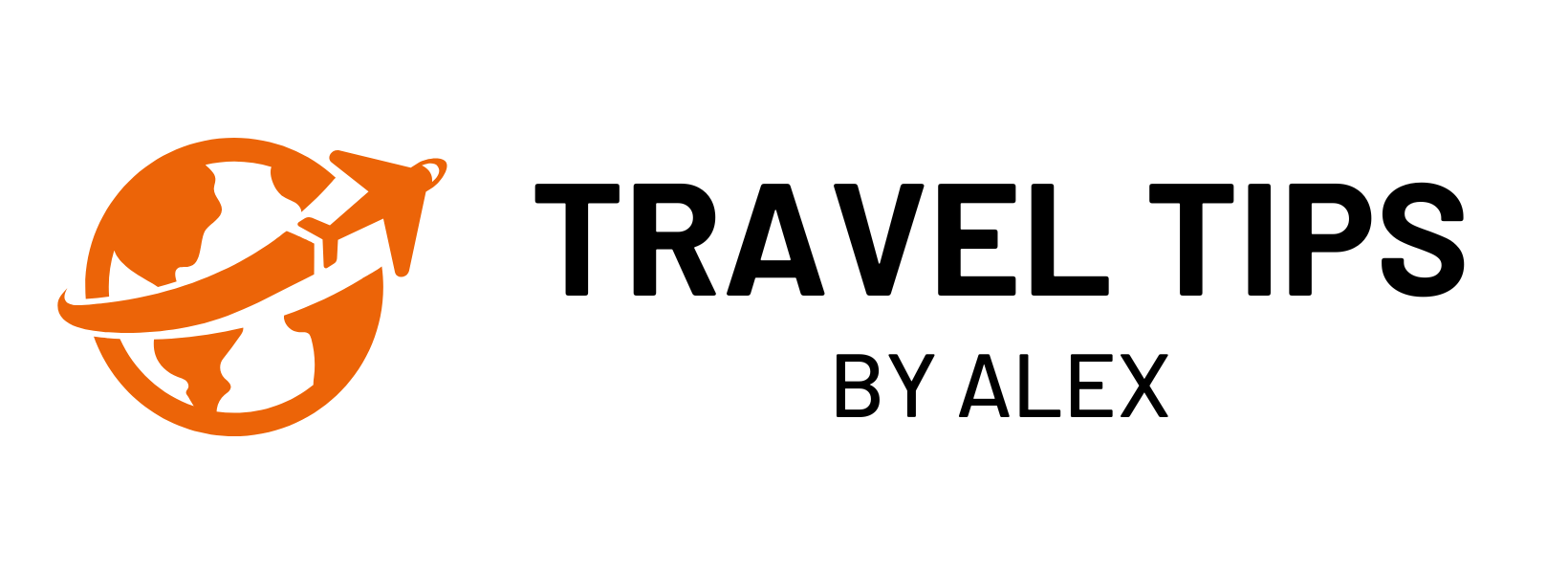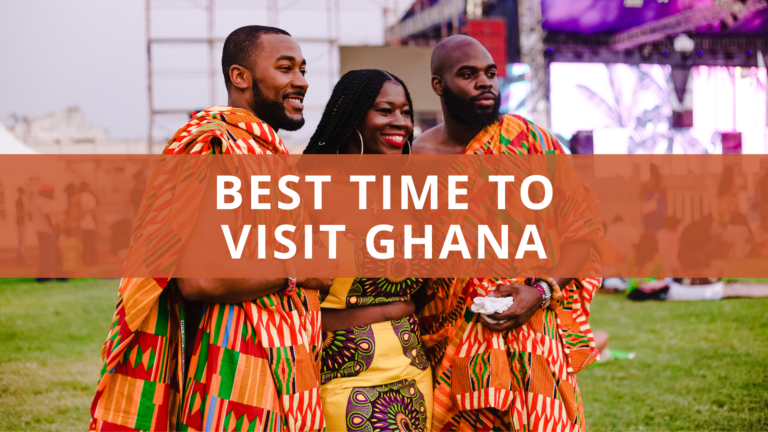When Is the Best Time to Visit Ghana? Plus 7 Top Tips
Ghana is a fantastic destination for anyone looking to experience a unique blend of culture, history, and natural beauty. But when is the best time to visit Ghana? In this article, I’ll break down the factors that can influence the best time to visit Ghana, from weather and events to crowds and prices. Plus, I’ll share 7 top tips to help you make the most of your trip.
Weather in Ghana
Ghana’s climate is generally hot and humid, with temperatures ranging from the mid-70s to the mid-80s Fahrenheit (around 24-30 Celsius) year-round. However, there are two distinct seasons to consider: the wet season and the dry season.
The wet season in Ghana typically runs from April to October, with peak rainfall in June and July. During this time, the country’s landscapes are lush and green, and you’ll likely see plenty of wildlife. However, heavy rains can also make travel difficult and some areas may be inaccessible. Mosquitoes are also more prevalent during the wet season, so be sure to bring insect repellent.
The dry season in Ghana runs from November to March, with December and January being the coolest months. This is generally considered the best time to visit Ghana, as temperatures are more comfortable and there is less chance of rain. However, be aware that the harmattan, a dry and dusty wind that blows from the Sahara, can sometimes make the air hazy and reduce visibility.
Best time to visit Ghana for weather: November to March
Events in Ghana
Ghana is known for its vibrant festivals and events, many of which are deeply rooted in the country’s cultural and religious traditions. Here are a few of the most popular events to consider when planning your trip:
- Hogbetsotso Festival (November): Celebrated by the Anlo Ewe people, this festival commemorates the migration of the Ewe people from Togo to their current home in Ghana.
- Damba Festival (December): A festival celebrated by the people of northern Ghana, featuring drumming, dancing, and horse riding.
- Fetu Afahye Festival (September): A festival celebrated by the people of Cape Coast, featuring processions, drumming, and dancing.
Attending one of these festivals can be a highlight of your trip to Ghana, but it’s important to plan ahead. Many festivals have specific dates and locations, and accommodations can fill up quickly. Be sure to check the festival calendar and book your travel and accommodations in advance.
Best time to visit Ghana for events: It depends on which festivals you want to attend. Check the festival calendar and plan accordingly.
Crowds and Prices
As with any travel destination, crowds and prices in Ghana can vary depending on the time of year. Here are a few things to keep in mind:
- Peak season (December to February): This is the busiest time of year in Ghana, with the most tourists and higher prices for accommodations and activities.
- Low season (June to August): This is the least busy time of year, with fewer tourists and lower prices. However, be aware that some areas may be affected by heavy rain.
- Shoulder season (March to May, September to November): This is a good time to visit Ghana if you want to avoid the crowds but still have good weather. Prices may be slightly lower than in peak season.
Best time to visit Ghana for crowds and prices: Shoulder season (March to May, September to November)
Top Tips for Visiting Ghana
Now that you have a better idea of the factors that can influence your decision on when to visit Ghana, here are 7 top tips to help you make the most of your trip:
1. Dress appropriately
Ghana is a conservative country, and it’s important to dress respectfully, especially when visiting religious sites. This means covering your shoulders and knees, and avoiding revealing or tight clothing. It’s also a good idea to pack lightweight, breathable clothing that will keep you cool in Ghana’s hot and humid climate.
2. Try the local cuisine
Ghanaian cuisine is diverse and delicious, with influences from West Africa, Europe, and beyond. Some must-try dishes include jollof rice, fufu (a starchy side dish), and banku (a fermented corn and cassava dough). Be sure to also sample the fresh fruit and seafood that Ghana has to offer.
3. Learn some basic phrases in Twi or Ga
While English is widely spoken in Ghana, learning a few basic phrases in Twi or Ga (two of the most widely spoken local languages) can go a long way in making connections with locals and showing respect for their culture.
4. Practice good mosquito prevention
As mentioned earlier, mosquitoes are more prevalent during Ghana’s wet season. Be sure to bring insect repellent and wear long-sleeved shirts and pants to protect yourself from mosquito bites. You may also want to consider taking antimalarial medication.
5. Be prepared for power outages
Power outages (known as “dumsor” in Ghana) are common in the country, and can sometimes last for several hours. Be sure to bring a portable charger or extra batteries for your electronic devices, and consider bringing a flashlight.
6. Respect local customs and traditions
Ghana has a rich cultural heritage, and it’s important to respect local customs and traditions. This may include removing your shoes before entering a home or temple, or asking permission before taking photos of people or places.
7. Bring cash (and be prepared to bargain)
While credit cards are becoming more widely accepted in Ghana, it’s still a good idea to bring cash for smaller purchases and street markets. Be prepared to bargain, especially when shopping for souvenirs or taking taxis.
Frequently Asked Questions
Here are some frequently asked questions related to “When is the best time to visit Ghana?”:
Do I need a visa to visit Ghana?
Yes, most visitors to Ghana will need a visa. You can apply for a visa online or at a Ghanaian embassy or consulate.
Is it safe to travel to Ghana?
Ghana is generally a safe country to travel to, but like any destination, it’s important to take basic safety precautions. These may include avoiding walking alone at night, keeping valuables out of sight, and staying aware of your surroundings.
What’s the currency in Ghana?
The currency in Ghana is the Ghanaian cedi (GHS).
Can I drink tap water in Ghana?
It’s generally not recommended to drink tap water in Ghana. Stick to bottled or filtered water, and avoid ice in drinks unless you’re sure it’s made from filtered water.
What’s the best way to get around in Ghana?
The most common modes of transportation in Ghana are taxis and buses. Taxis are widely available in cities and can be hailed on the street or through a ride-hailing app. Buses are a more affordable option for longer distances, but may be less comfortable than a private car.
Conclusion to the Best Time to Visit Ghana
Ghana is a fascinating and welcoming country that offers a wealth of experiences for travelers. Whether you’re interested in history, culture, or natural beauty, there’s something for everyone in Ghana.
When planning your trip, consider the factors that can influence your decision on when to visit, such as weather, events, crowds, and prices. And don’t forget to follow the top tips we’ve provided to make the most of your time in Ghana.
From exploring the vibrant city of Accra to visiting the stunning beaches of Cape Coast, there’s no shortage of things to see and do in Ghana. So what are you waiting for? Start planning your trip today and discover all that this amazing country has to offer!
- What to Wear in Cancun by Month & Activity (And Not!) - March 13, 2023
- What to Wear in New York by Month & Activity (And Not!) - March 13, 2023
- What to Wear in Morocco by Month & Activity (And Not!) - March 13, 2023

